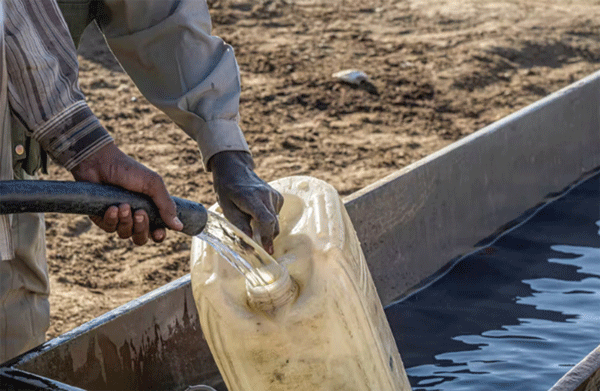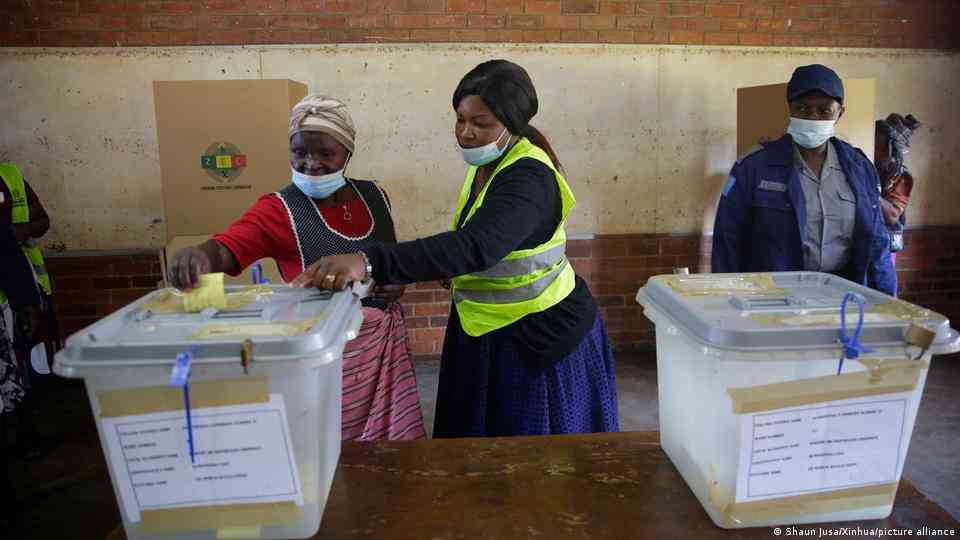
BY VANESSA GONYE/ SHARON BUWERIMWE A HEALTH disaster looms in the country’s urban areas due to persistent water shortages, residents’ associations warned yesterday.
This comes after most suburbs and industrial sites in Harare have gone for weeks without running water, while others have dirty water coming out of their taps.
In Bulawayo, a 72-hour water rationing schedule has already been introduced, resulting in residents clocking more than four days without water.
The acute water shortages have forced some residents to resort to unsafe water sources, exposing themselves to waterborne diseases such as diarrhoea and cholera.
Cholera hotspots such as Harare’s Glen View and Mbare suburbs have also gone for weeks without water supplies, prompting panic among residents.
In 2008, more than 4 000 people died during a major cholera outbreak that affected close to 100 000 people and spread across neighbouring countries.
Chitungwiza Residents Trust director Alice Kuvheya yesterday told NewsDay that desperate residents in the dormitory town were now buying water.
“Chitungwiza is facing a health time bomb. We are buying water at $20 per bucket. We don’t have our own sources of water, and we now buy water from the City of Harare. Our lives are at risk, and there is a looming health disaster as sewage is strewing all over the wards. This could trigger cholera and typhoid. The government must address this crisis as a matter of urgency,” Kuvheya said.
- Chamisa under fire over US$120K donation
- Mavhunga puts DeMbare into Chibuku quarterfinals
- Pension funds bet on Cabora Bassa oilfields
- Councils defy govt fire tender directive
Keep Reading
Harare Residents Trust director Precious Shumba blamed local authorities for spending money on workshops and trips at the expense of the suffering residents.
“We are alarmed at the continued shortages of water in dozens of communities across Harare Metropolitan province where some residents have gone for more than a month without receiving council water. While the majority of the residents who do not have water are connected to the water system, thousands of residents in illegal settlements report that their boreholes are frequently running out of water, creating a huge health crisis,” Shumba said.
“Despite the life-threatening water shortages and claims of low revenue collections, City of Harare management and councillors are taking turns to organise workshops in Victoria Falls, Masvingo, Mutare, Kadoma and Bulawayo, where they pay each participant huge amounts in allowances plus fuel coupons. This shows that the water crisis is not a priority to the council policymakers and management.”
Combined Harare Residents Association programmes manager Reuben Akili said: “Some residents are now accessing water from unprotected water sources, which is a health time bomb waiting to explode, especially for people who reside in Mbare hostels, where communal toilets are not functioning, leading to open defecation.”
He said City of Harare must end the ZimPhos monopoly for the supply of water chemicals and look for alternative suppliers.
Community Water Alliance’s research, information and advocacy officer Sharon Kaseke said digging of shallow unprotected wells was putting residents’ lives at risk.
“We appeal to the City of Harare to stand guided by basic values and principles governing public administration in section 194(1)(e) of the Constitution which states that ‘people’s needs must be responded to within a reasonable time’,” she said.
Harare mayor Jacob Mafume, however, accused government of failing to supply them with chemicals.
“The problem is the chemicals. Our sole supplier, which is owned by the government, is failing to supply us with chemicals. We have been ready to distribute the water, but the government has been failing us. We are hoping that we get our supplies soon from China. Tomorrow, we will have a council meeting to talk about that issue,” he said.
Harare director for health Prosper Chonzi said: “We want people to get clean and safe water so that we avoid some of these waterborne diseases. We want people to get water from treated sources as the situation is looked into. If people get these diseases, I advise that they get to the nearest clinic as soon as possible.”










